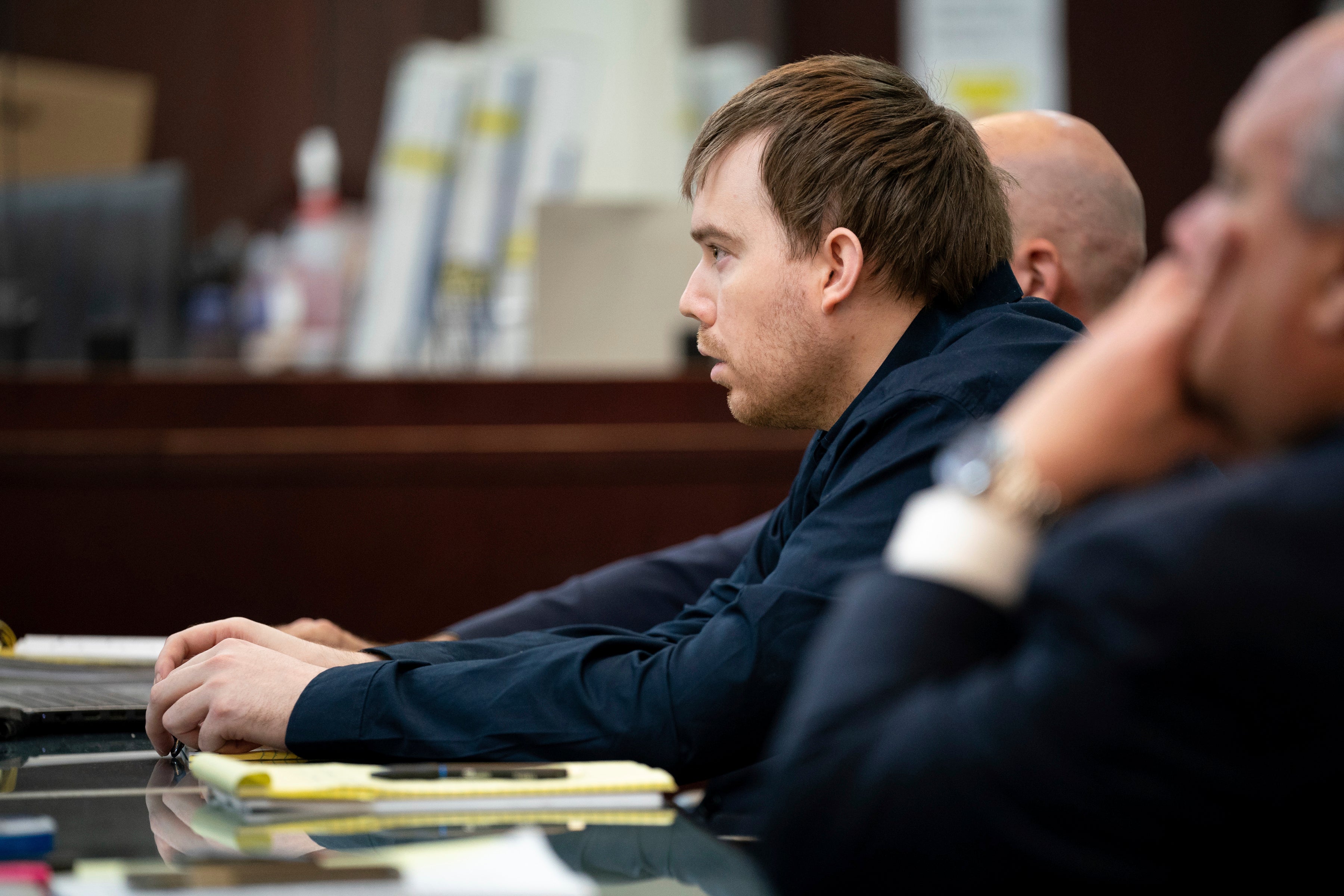Waffle House shooting case goes to Nashville jury
The murder trial of a man who shot and killed four people at a Nashville Waffle House in 2018 is going to the jury

The murder trial of a man who shot and killed four people at a Nashville Waffle House in 2018 was going to the jury on Friday after both sides gave their closing arguments.
Travis Reinking, 33, does not dispute that he opened fire inside the restaurant just after 3:20 a.m. on April 22, 2018. Naked save for a green jacket, he fled after restaurant patron James Shaw Jr. wrestled his assault-style rifle away from him, triggering a manhunt.
Charges against Reinking include four counts of first-degree murder for killing Taurean Sanderlin, 29; Joey Perez, 20; Akilah Dasilva, 23; and DeEbony Groves, 21, in the early morning of April 22, 2018. Prosecutors are seeking a life prison sentence without the possibility of parole.
Reinking has pleaded not guilty by reason of insanity, and prosecutors do not dispute that he has schizophrenia, which has caused him to experience delusions and hallucinations. But the two sides disagree on an essential point: whether Reinking’s mental illness made him unable to appreciate the wrongfulness of his actions.
In closing arguments Friday, Davidson County Assistant District Attorney General Ronald Dowdy made an emotional appeal to the jury, at one point holding a 30-cartridge magazine for the Bushmaster XM-15 semi-automatic rifle Reinking used during the shooting and slowly loading it while speaking the names of those killed and injured.
Reinking, sitting at the defense table in a navy blue button-up shirt, showed little emotion during closings or the entire trial — his face slack, his mouth slightly open. He did not testify and only spoke briefly, with the jury out of the room, while the judge determined that he understood his right to testify or not.
Evidence presented at trial showed Reinking had suffered delusions for several years, believing that unknown people were harrassing and tormenting him. Dr. Mary Elizabeth Wood, a forensic psychologist, said Reinking’s delusions began with his belief that he was having “friendly communications” with Taylor Swift that “over time became threatening.” When law enforcement refused to take seriously his reports that he was being threatened, stalked and harassed, he began to feel that they and other random people were part of a conspiracy against him, Wood said.
Shortly before the attack, he believed that someone had drugged him, broken into his apartment and raped him, according to Wood. In praying about what he should do, Reinking said he received a command from God to go to the Waffle House and shoot three people.
Dowdy suggested that Reinking's actual motive was revenge. He emphasized an incident days before the shooting in which Reinking stole a BMW from a dealership. Reinking wrote in a journal about plans to drive to Colorado, describing a life in which he would hang out with friends, smoke marijuana, hike in the mountains and “repossess” cars and houses so that he would not have to work.
After police took the BMW back the next day, he wrote, “This time I would have to punish them by taking something they couldn’t take back, some of their own lives.”
“He got upset, and so he drove to that Waffle House angry, because he wanted to exact the same kind of pain and suffering that he felt on others,” Dowdy said during closing arguments.
Dowdy reminded the jury that several police and sheriff's officers testified that Reinking was calm and compliant after he was arrested.
“This is a man whose doctors now claim he believed in a grand conspiracy, that agents of the state were after him, but when the guys with the guns come for him, nothing but compliance," Dowdy said.
Defense attorney Paul Bruno reminded jurors that they can and should feel sympathy for the victims. The first two days of the trial, in which a series of survivors and first responders gave emotional testimony about the shooting, were “two of the hardest days of my career, to listen to all that,” Bruno said. “You can have sympathy, but you can’t come up with a verdict based on that. That’s the law.”
The only two mental health experts to testify both concluded that Reinking was unable to understand the wrongfulness of his actions. They were impartial experts, ordered to evaluate him for the court or during the course of his commitment at the Middle Tennessee Mental Health Institute.
Bruno pointed out that despite the many witnesses called by prosecutors, they did not call a mental health expert.
Dowdy reminded the jurors that they can disgard the testimony of the experts and encouraged them to do so, suggesting that during cross-examination the two psychologists contradicted their earlier opinions.
“He’s got a mental illness, but that’s not why he did this,” Dowdy said.
Bookmark popover
Removed from bookmarks